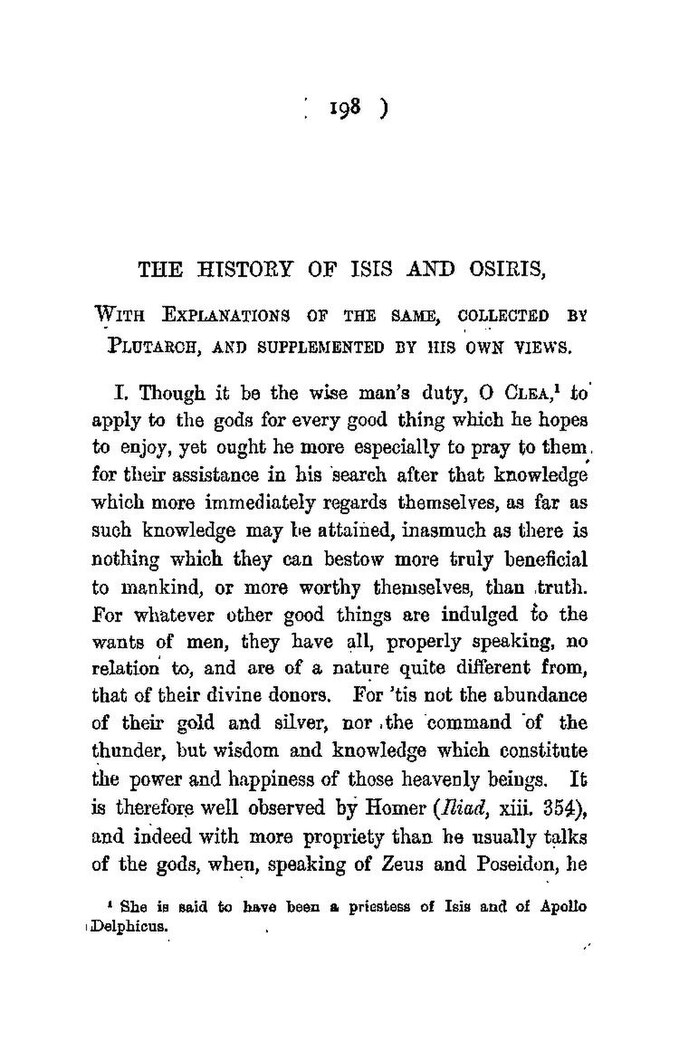( 198 )
THE HISTORY OF ISIS AND OSIRIS,
With Explanations of the same, collected by Plutarch, and supplemented by his own views.
I. Though it be the wise man’s duty, O Clea[1] to apply to the gods for every good thing which he hopes to enjoy, yet ought he more especially to pray to them for their assistance in his search after that knowledge which more immediately regards themselves, as far as such knowledge may he attained, inasmuch as there is nothing which they can bestow more truly beneficial to mankind, or more worthy themselves, than truth. For whatever other good things are indulged to the wants of men, they have all, properly speaking, no relation to, and are of a nature quite different from, that of their divine donors. For 'tis not the abundance of their gold and silver, nor the command of the thunder, but wisdom and knowledge which constitute the power and happiness of those heavenly beings. It is therefore well observed by Homer (Iliad, xiii. 354), and indeed with more propriety than he usually talks of the gods, when, speaking of Zeus and Poseidon, he
- ↑ She is said to have been a priestess of Isis and of Apollo Delphicus
